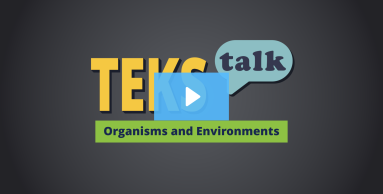
Knowledge and Skills Statement
The further explanation is designed to be a resource for educators that helps them better understand the topic their students are learning. Further explanations may be written at a more complex level than would be expected for students at the grade level.
In grade 3, students explored the flow of energy through food chains. In grade 4, students gain experiences with food webs. By grade 5, students will be able to use their knowledge to predict the consequences of changes made to a food web.
Decomposers consume the bodies or waste of other organisms as food. Decomposers include insects, worms, bacteria, and fungi. Although they are neither plants nor animals, grade 4 students are not expected to know that bacteria and fungi belong to different kingdoms.
Research
Dobson, Christopher, and Dan Postema. “The Amazing Ecology of Terrestrial Isopods.” Science and Children 51, no. 7 (March 2014): Washington: National Science Teachers Association.
https://www.proquest.com/docview/1506150053?pq-origsite=gscholar&fromopenview=true&sourcetype=Scholarly%20Journals.
Summary: This article explains a study done in an elementary classroom on how roly-polies interact with their environment. Roly-polies were chosen because they are easily accessible and safe for children to handle and observe closely. This study shows how organisms interact with non-living things (sunlight, water, temperature) and other living things, either by competition or mutualism. Students observe how roly-polies use things in their environment to help them survive by finding moist and dim areas. Roly-polies also benefit from group behavior by huddling together in response to water loss or warmth.
